DEMO Fall 2012 wrapped up in Santa Clara today, where 77 startups took the stage to show off their apps, services and products. The young companies were given six minutes to pitch their ideas and impress the audience, collectively competing for the $1 million advertising prize that went to the idea with the most promise.
From a bird identification app and an “Internet of Things” to apartment finders and augmented reality, here are the 14 startups that stood out from the pack during the three-day launch event.
The Winners
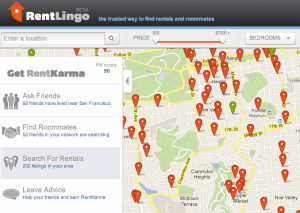 RentLingo, which was picked as the best of the “Alpha Pitches” given by student entrepreneurs, began as a simple class project at Stanford. Co-founders Dan Laufer and Byron Singh interviewed hundreds of tenants, apartment owners and property managers, during which a pattern emerged. Although there are scores of sites that allow you to browse apartment listings, there is no easy way to find information on prospective tenants, roommates or sublets.
RentLingo, which was picked as the best of the “Alpha Pitches” given by student entrepreneurs, began as a simple class project at Stanford. Co-founders Dan Laufer and Byron Singh interviewed hundreds of tenants, apartment owners and property managers, during which a pattern emerged. Although there are scores of sites that allow you to browse apartment listings, there is no easy way to find information on prospective tenants, roommates or sublets.
So RentLingo decided to use social networking to make the rental process less of a pain in the ass and help landlords find great tenants and renters find the best apartments. To do that, the startup aggregates info from the major listings players and uses Facebook’s Open Graph to give users social context as they search for apartments. It presents this all via a dynamic map UI, giving listings more of a localized feel and allowing you to see what friends have lived in a particular area and reach out to them (within the app) to ask questions.
Your friends can then drag and drop a comment about the apartment, all of which is visible to people within your network and social graph. The site aggregates and lets you view all of this social sentiment around each listing, aiming to provide a more effective and relevant “review” system. Listings with reviews from your network show up as blue pins, while national listings show up as red pins, all of which can be easily filtered by price, size, location and recency.
The idea is to turn the platform into a place where owners go to see what renters are saying about them (a la Yelp) and to help students and renters find great spots with the help of their social graph and location targeting. With Padmapper, Craigslist, Zumper and seemingly hundreds more, it’s a crowded space, but RentLingo has taken a unique angle that could be powerful at scale.
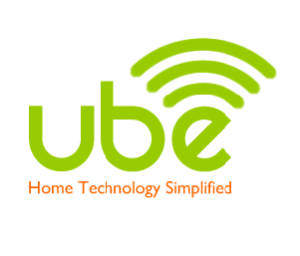 Austin-based Ube (pronounced yoo-bee) took home the “People’s Choice Award” at DEMO because it plays into our sci-fi-fueled visions of what technology will do to our homes over the next few decades. The startup is trying to take the unintuitive and costly world of home technology and make it simple and cheap, while removing the need for extra hardware or programming.
Austin-based Ube (pronounced yoo-bee) took home the “People’s Choice Award” at DEMO because it plays into our sci-fi-fueled visions of what technology will do to our homes over the next few decades. The startup is trying to take the unintuitive and costly world of home technology and make it simple and cheap, while removing the need for extra hardware or programming.
Ube’s app allows users to easily control IP-enabled smart devices using their Android or iPhone. This includes smart TVs, set top boxes, AV receivers, DVD players, thermostats, garage doors openers and more. You can even use the app to control your devices while you’re away from home using the Ube Cloud — all you need is a smartphone and a WiFi router. The company said that its app will work with over 200 IP-controlled devices when it launches next month. Peter covered Ube’s launch yesterday, which you can check out here for an in-depth review.
It was also a big day for Rock Health (and healthtech at large), as two of DEMO’s five winners were part of the health accelerator’s most recent batch. We covered Rock Health’s third batch here, and descriptions are included below.
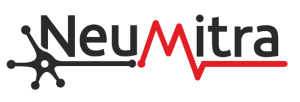 Neumitra develops data-driven technologies to address the effects of stress on health, productivity, and happiness. More specifically, the company is developing both wearable and mobile tech that uses biosensors to monitor your autonomic nervous system and the contextual and personal cues that set off stress. The company collects that data, offering analytics and a dashboard that highlight key metrics — both for individuals and large organizations.
Neumitra develops data-driven technologies to address the effects of stress on health, productivity, and happiness. More specifically, the company is developing both wearable and mobile tech that uses biosensors to monitor your autonomic nervous system and the contextual and personal cues that set off stress. The company collects that data, offering analytics and a dashboard that highlight key metrics — both for individuals and large organizations.
At DEMO, Neumitra presented its newest product, Bandu, a smart watch that helps users reduce stress and “slow down.” Using smart sensors to identify biometric signals, Bandu monitors your body temperature, motion and skin conductance. When it finds significant changes in the norm (i.e. red flags that indicate an increase in stress), the device prompts you to take a number of mood-altering actions, of the non-narcotic or barbiturate variety, of course. Sending notifications to your phone, Bandu might suggest that you play a game, or call a kindly grandmother, or play some music.
 NeuroTrack is a suite of behavioral assessment tools (software-based cognitive/visual tests) that can help identify the symptoms and diagnose Alzheimer’s disease and cognitive impairment up to four years before their onset. Nerotrack works with pharma companies and researchers to recruit candidates for clinical trials and to help measure drug efficacy, thereby speeding up the process of drug development.
NeuroTrack is a suite of behavioral assessment tools (software-based cognitive/visual tests) that can help identify the symptoms and diagnose Alzheimer’s disease and cognitive impairment up to four years before their onset. Nerotrack works with pharma companies and researchers to recruit candidates for clinical trials and to help measure drug efficacy, thereby speeding up the process of drug development.
DEMO saw the launch of NeuroTrack’s newest product, which aims to make Alzheimer’s diagnosis more widely accessible by removing the need to take an eye-tracking test and, instead, simply allows users to take the test using a mouse or trackpad.
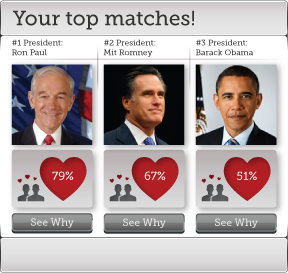 ElectNext aims to help anyone and everyone get informed and stay engaged with important political issues. People are busy and generally stay away from politics, but apparently our votes count and can help shape policy that determines how we live our lives — or at least so we’re told. At the very least, we could all stand to be a little bit more informed. So, ElectNext aims to make that easy through a little visual Q&A and some dating dynamics.
ElectNext aims to help anyone and everyone get informed and stay engaged with important political issues. People are busy and generally stay away from politics, but apparently our votes count and can help shape policy that determines how we live our lives — or at least so we’re told. At the very least, we could all stand to be a little bit more informed. So, ElectNext aims to make that easy through a little visual Q&A and some dating dynamics.
The end-goal is to match users with the right politician (the one who aligns closest with your political views) and does so by prompting them to choose the three issues that matter to them most. The site then asks an additional ten questions, using your responses to determine your political match. If that doesn’t satisfy, users can go through each question, digging down into the data and compare each politician’s stand on the particular issue.
Users can then make a donation to their chosen candidate and engage with them on various networks. Obviously, it’s simple as is, but you can see this potentially being a useful platform for politicians to engage their constituency based on issues that matter to them and a way to disseminate propositions (oh, California), petitions, etc. ElectNext itself simply wants to create a tool that increases voter participation in the U.S. Even if this isn’t the way to do it, the goal is an admirable one. But good luck with the young people, I hear they’re apathetic.
 Ecolek’s Birdeez grew out of a student project at UC Santa Barbara. A bird in the hand is worth two on your phone, or something. The app, simply put, helps bird-watchers identify and track whales. No, just kidding, it helps them track birds they see on their routine bird-watching adventures. Birdeezows read descriptions of the avian animals you identify, keep track of all your sightings and even tweet about it. Get it? Tweet? Warning: This app may not have quite as much utility if you’re an urban dweller. You can only identify pigeons so many times.
Ecolek’s Birdeez grew out of a student project at UC Santa Barbara. A bird in the hand is worth two on your phone, or something. The app, simply put, helps bird-watchers identify and track whales. No, just kidding, it helps them track birds they see on their routine bird-watching adventures. Birdeezows read descriptions of the avian animals you identify, keep track of all your sightings and even tweet about it. Get it? Tweet? Warning: This app may not have quite as much utility if you’re an urban dweller. You can only identify pigeons so many times.
 Flinja is out to help college students and recent grads find jobs — at least part time. Which is an awesome mission given the un-and-underemployment epidemic among this age group. Flinja wants to turn college students into a freelance workforce, offering an eMarketplace in which they can make themselves available for freelance work. A bit like Zaarly or TaskRabbit with a twist, students post the services they want to provide and employers and faculty can book directly. The idea, writ large, is to give students one place where they can search for jobs and internships, make connections and build a professional network and make a few bucks on the side.
Flinja is out to help college students and recent grads find jobs — at least part time. Which is an awesome mission given the un-and-underemployment epidemic among this age group. Flinja wants to turn college students into a freelance workforce, offering an eMarketplace in which they can make themselves available for freelance work. A bit like Zaarly or TaskRabbit with a twist, students post the services they want to provide and employers and faculty can book directly. The idea, writ large, is to give students one place where they can search for jobs and internships, make connections and build a professional network and make a few bucks on the side.
Notables
 PassBan — One of my favorite products from DEMO was PassBan, an app that offers multi-factor verification for your mobile device and more. While there are a multitude of security apps and password keepers that help keep devices and sensitive digital info secure, few offer users the ability to unlock websites and devices by way of voice, motion, facial recognition, location and token verification.
PassBan — One of my favorite products from DEMO was PassBan, an app that offers multi-factor verification for your mobile device and more. While there are a multitude of security apps and password keepers that help keep devices and sensitive digital info secure, few offer users the ability to unlock websites and devices by way of voice, motion, facial recognition, location and token verification.
Users can set up their phones, for example, so that access is granted only by scanning their glorious visage. On top of that, the app (which will be available on iOS and Android in the coming months) lets you choose different levels of security for individual sites or apps, so you could keep nosey roommates out of your Dropbox account or your Gmail. Or maybe your son or daughter has been racking up your bill from in-app purchases in a game on your iPad, in which case you could have PassBan grant access if and when it hears your voice.
Another cool feature: The app works remotely, so that you could, say, grant or deny access to websites your progeny is trying to view at home while you’re at work. Users can pick and choose between voice, face, location, etc. for different apps and websites or set up a combo of those on one particular app or website. The startup is currently in beta and will be launching to the public soon. So stay tuned.
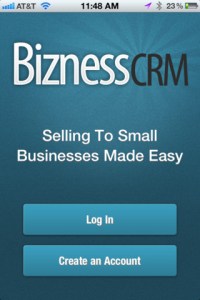 Bizness Apps: We’ve written about this startup a number of times, thanks to their simple tools that allow individuals or businesses to quickly and affordably create their own mobile apps for iOS, Android or the Web (with HTML5) — even if they don’t have any technical know-how.
Bizness Apps: We’ve written about this startup a number of times, thanks to their simple tools that allow individuals or businesses to quickly and affordably create their own mobile apps for iOS, Android or the Web (with HTML5) — even if they don’t have any technical know-how.
While the startup also offers a white-label program for DIY app development, at DEMO the startup added a new product to its growing arsenal of tools for the SMB market. The new product, called Bizness CRM, was initially built internally to help its white-label resellers sell apps and websites to startups and small businesses. Unable to find a good third-party product to recommend for those looking to sell to SMBs, the team turned it into a product.
One of the CRM platform’s key features is a lead generator that allows users to find leads in any industry, any location and then narrow that list based off of optional criteria, like “has website” or “has Twitter page,” etc. Obviously, a small business that has a quality website and a social media presence is much more likely to invest in a mobile app if they’ve already seen results from traditional marketing, so this helps sales teams and marketers save time and narrow the field.
The platform also includes a tracking pipeline, a scheduling calendar, a metrics dashboard, team collaboration and a native iPhone app to track sales on the go.
 Portland-based Tellagence is making a bold claim: The startup believes that it has developed technology that allows it to predict the flow of content on social networks — who will share information on any network. Simply put, the social prediction technology uses algorithms to analyze and measure the enormous amount of interactions, behavior and changes that take place every day across social networks.
Portland-based Tellagence is making a bold claim: The startup believes that it has developed technology that allows it to predict the flow of content on social networks — who will share information on any network. Simply put, the social prediction technology uses algorithms to analyze and measure the enormous amount of interactions, behavior and changes that take place every day across social networks.
Not just another social analytics platform, Tellagence instead calls itself a “conversation monitoring system” that identifies context and relationship dynamics to predict the path of communication. The goal is to allow brands and businesses to optimize marketing efforts and increase reach by moving away from focusing on individual influencers to targeting smaller, key group of users and their most significant relationships.
The startup’s first product focuses on Twitter and is geared toward enterprise marketers. For more on the science, go here.
Ones To Watch
YouBetMe is an app that lets you challenge your friends (and strangers) to a wager about anything — at anytime. The app lets you capitalize on all of life’s betting opportunities, whether it’s on Monday Night Football, whether your startup will get covered by TechCrunch, how many Jello shots you can take, etc. Users can also create and confirm bets on the go through the app’s SMS-based betting platform, tracking betting data and view public ratings designed to keep bettors honest.
Bonfyre is a photo and content-sharing app that lets users create private groups to share with those who matter most (and will find the share relevant). Those private groups are created around events, which become part of group photostreams and forums to enable reminiscing, event planning and good ole realtime mobile sharing.
Blipboard is a personalized mobile map of the exciting stuff happening around you. The map surfaces places and events nearby based on the activity and interests of your friends, influencers and other businesses. Users can create “blips” or location-based alerts designed to attract others to the venue. The app is headed to the app store shortly.
Candy Lab’s new mobile app uses augmented reality to turn the world around you into a video game — with advertising. The company calls Cachetown a combination of “Google AdWords, Foursquare, and Super Mario Brothers,” delivering its game layer in location-based AR.
Top Photo Credit: Stephen Brashear
